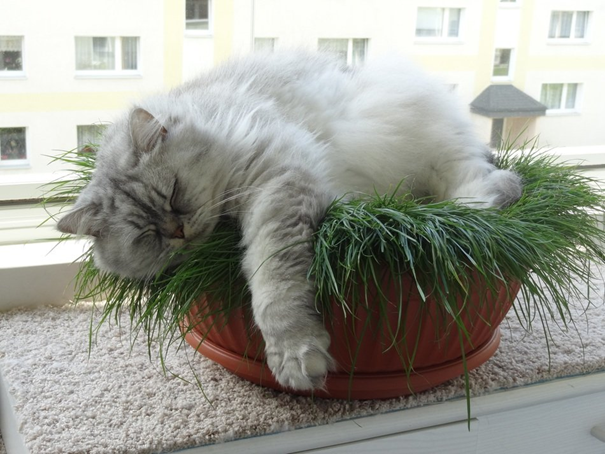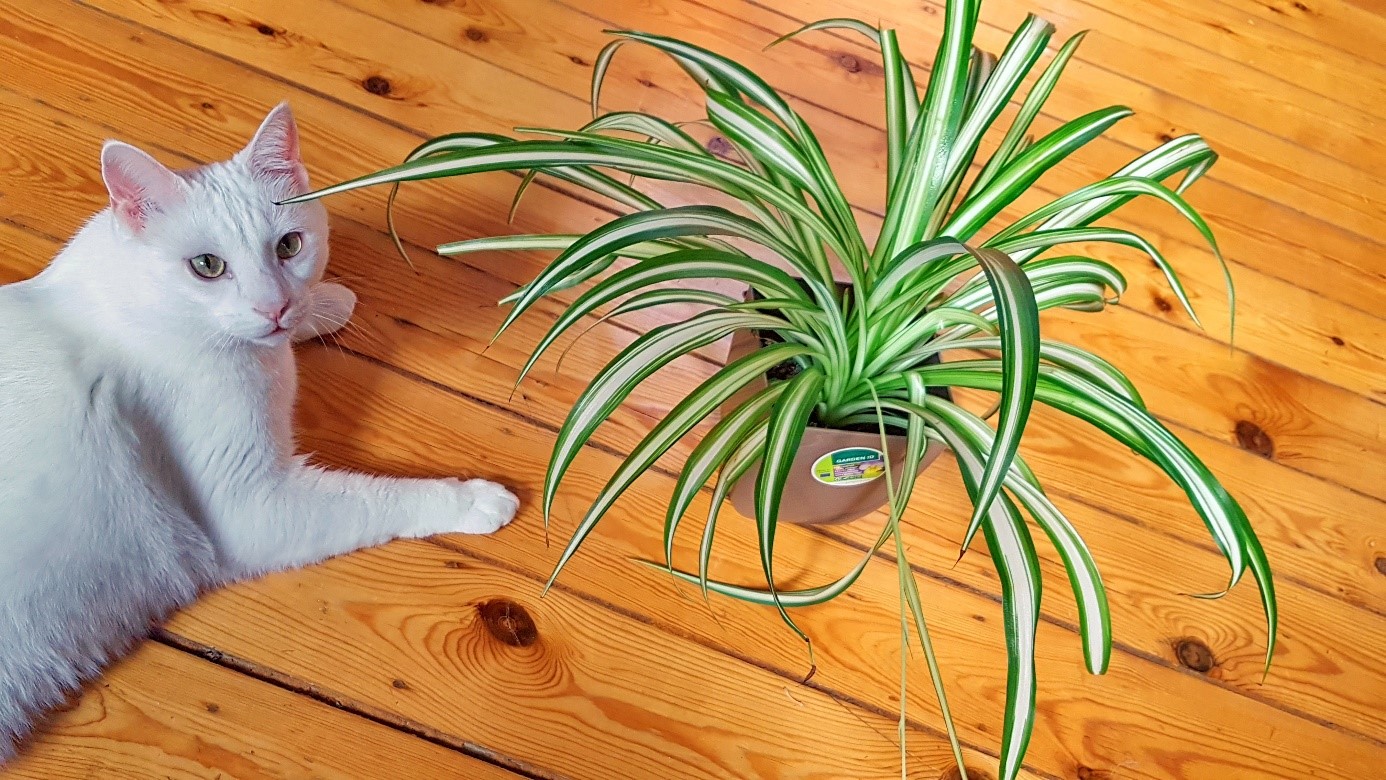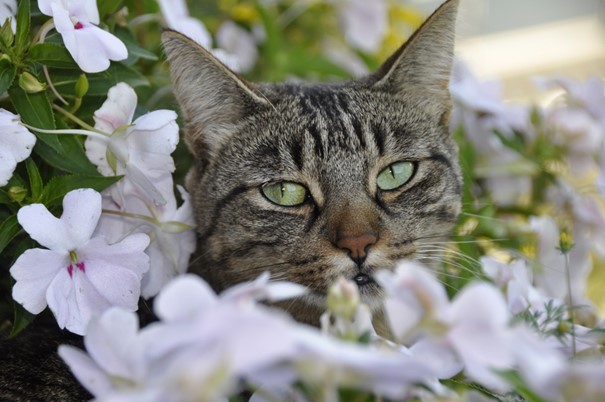Nearly one Belgian in three owns a cat. Not exactly fragile, this little furry companion is rather independent, and often gives your houseplants a run for their money. And some of them can be harmful to him. So what to choose and what to do? Here's a quick overview.


Why does your cat eat your green plants?
The main cause of this bad habit is probably digestive. Indeed, if your cat has regular access to the outdoors, he'll eat grass there, which he'll vomit up a few moments later. On the other hand, if he always stays indoors, he may regard your green plants as grass. To solve this problem, buy him some catnip!
Some indoor cats see green plants as playgrounds! Especially if they don't have toys, perches or a cat tree. In this case, it's not uncommon to see them scratching the soil, scattering it all over the place, and even knocking over plants.
Finally, your cat may also attack your plants to get your attention. A bit like a child. It's his way of letting you know he feels left out or stressed! He'll then "take out his nerves" on your plants.


Plants that cats love
There are two families of plants to choose from when you have a cat: grasses and herbs.
- Everyone knows catnip, the grassy plant available in every pet shop. It's easy to grow and store. There are several varieties. Cats love to nibble on it. It helps them get rid of hairballs.
- Beaucarnéa, or elephant's foot, is also a favorite with your feline. Its tough leaves serve as a toothbrush! Grasses with tough leaves, such as sedges, will also appeal to him.
- Callisia turtle is a climbing plant rich in essential nutrients. Cats love it.
- Did you know that mint attracts cats? Put a few sprigs near your cat's litter box to make sure he returns to it. Parsley is an excellent diuretic for your cat.


Plants to avoid
Fortunately, many plants are harmless to your four-legged friends. But some plants can be particularly toxic to cats. These include dieffenbachia, ficus, azalea, jasmine, anthurium, alocasia and yucca. The list goes on and on.
It's best to be informed and not underestimate the possible effects on your cat. In the event of ingestion, your cat may experience varying degrees of digestive, cardiac or even neurological problems...

Solutions to keep your cat away from your plants
The secret to not banishing plants from your home: spray the leaves with a natural repellent.
Tip from the pros: to keep your cat away from a potentially toxic plant, mist it with lemon water or water mixed with vinegar.
Or place a few drops of lemongrass or peppermint essential oils on the pot. Your cat hates it.
And if he scratches the soil and gets it everywhere, you can cover it with pebbles, shells or pine bark. But don't use clay balls ... cats love to roll them around and slide them under furniture. Finally, you can also put coffee grounds on the soil - another natural, harmless repellent.


Browse the collection